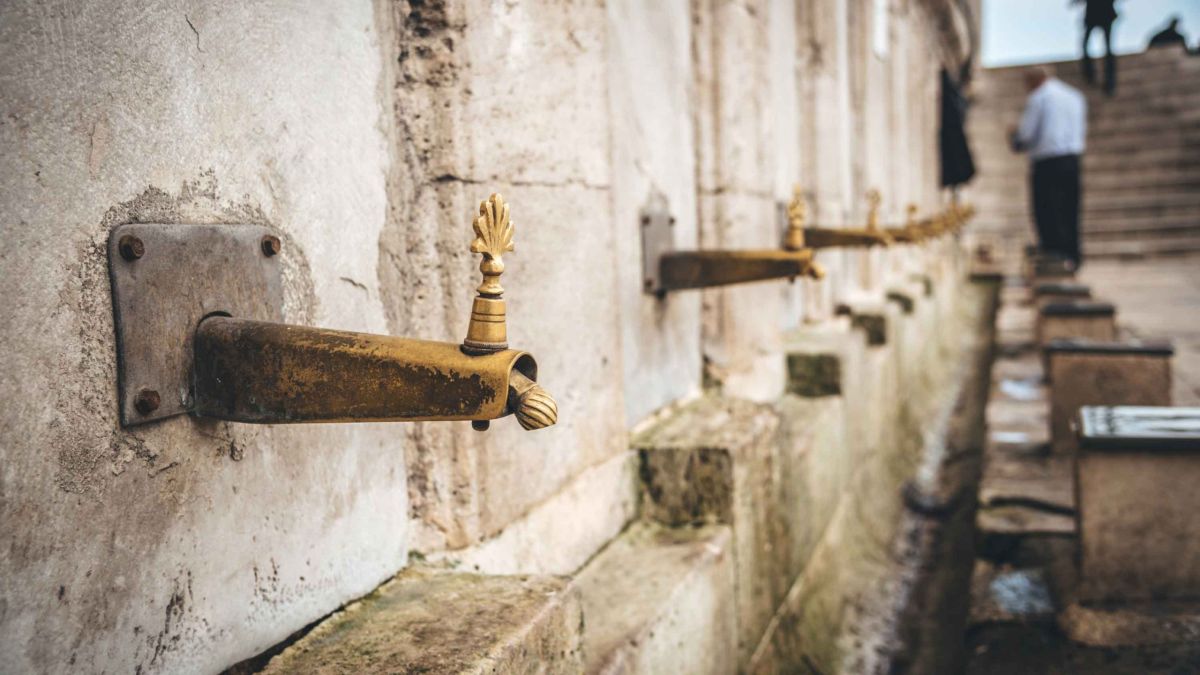A Simple List of Conditions for Wūḍūʿ
Al-ʿAllāmah Ṣāliḥ ibn Fawzān al-Fawzān


Shaykh Ṣāliḥ al-Fawzān (حفظه الله) mentioned:
يَا أَيُّهَا الَّذِينَ آمَنُوا إِذَا قُمْتُمْ إِلَى الصَّلَاةِ فَاغْسِلُوا وُجُوهَكُمْ وَأَيْدِيَكُمْ إِلَى الْمَرَافِقِ وَامْسَحُوا بِرُءُوسِكُمْ وَأَرْجُلَكُمْ إِلَى الْكَعْبَيْنِ ۚ
O you who believe! When you intend to offer the prayer, wash your faces and your hands (forearms) up to the elbows, rub (by passing wet hands over) your heads, and (wash) your feet up to the ankles.
[al-Māʾidah, 5:6]
This noble verse obligates that wuḍūʾ (ablution) must be performed before prayer and indicates which body parts should be washed or wiped during wūḍūʾ, and more specifically, which part (of those body parts) should be washed or wiped. Thereafter, the Prophet ﷺ has clearly and evidently explained the way wūḍūʾ is performed through his statements and actions.
Every Muslim should know that wuḍūʾ has conditions, obligations and acts of Sunnah. The conditions and obligations must be fulfilled to the best of one’s capability in order to ensure the validity of the ablution. As for the acts of Sunnah, they are actions that perfect the wūḍūʾ which also carry additional reward, yet abandoning them does not invalidate one’s wudūʾ.
The conditions of wūḍūʾ are eight:
1. Islām
2. mental stability
3. age of discernment
4. intention
Wuḍūʾ is invalid if performed by a disbeliever, an insane individual, a child who is unable to distinguish between right and wrong, and one who does not intend wuḍūʾ, merely performing it as a means of relief during hot weather, or as a means of cleansing one’s body parts to remove impurities and filth.
5. pure water
Water used for performing wuḍūʾ must be pure because impure water is not suitable for wuḍūʾ.
6. legally obtained water
If the water was taken by force or illegally acquired, wuḍūʾ with it will be invalid.
7. istinjāʾ (cleaning oneself with water) or istijmār (cleaning oneself with stones) when necessary
8. removing what may prevent water from reaching the skin
The individual performing wuḍūʾ is required to remove anything covering the skin such as dirt (accumulated on the body), dough, wax, thick paint, etc., in order for water to directly reach the skin.1
Source: ملخص الفقهي.
Translated by: Munīb al-Ṣumālī
Most Popular: Last 30 Days

















